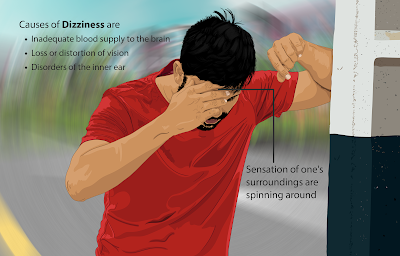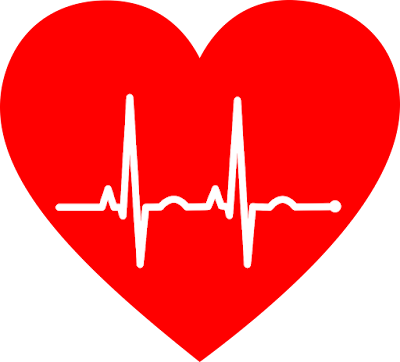Pay Attention to These 6 Warning Signs: Your Body's Signals One Month Before a Heart Attack
Recognizing the Silent Threat: Preceding Signs of a Heart Attack
Heart attacks, though often portrayed as sudden and dramatic events, typically don't occur out of the blue. In fact, the human body frequently sends out warning signals in the weeks leading up to a heart attack, providing an opportunity for intervention and prevention. Despite this, many individuals may overlook or dismiss these subtle hints, putting themselves at risk of a potentially life-threatening event.
The problem lies in the misconception that heart attacks strike without warning, leading people to ignore symptoms until it's too late. However, by understanding and recognizing the early signs, individuals can take proactive measures to safeguard their heart health and prevent the onset of a heart attack.
Heart attacks, also known as myocardial infarctions, are often sudden and catastrophic events. However, what many people don't realize is that the body often sends out warning signals well in advance. Recognizing these signs can be crucial in preventing a full-blown heart attack. Here, we delve into the subtle hints your body may be giving you, one month before a heart attack.
1: Unusual Fatigue and Weakness
Feeling unusually tired or weak, even after adequate rest, could be a sign that your heart is not functioning optimally. Pay attention to how you feel throughout the day. If you find yourself struggling with once-easy tasks, it might be time to consult a healthcare professional. Fatigue and weakness are often overlooked symptoms but can serve as important warning signs.
2: Shortness of Breath
Shortness of breath, especially during physical exertion or even at rest, can indicate a problem with your heart. This symptom occurs because the heart is unable to pump enough oxygen-rich blood to meet the body's needs. If you notice yourself becoming breathless more frequently or struggling to catch your breath, it's essential to get evaluated promptly.
3: Chest Pain or Discomfort
Chest pain or discomfort is perhaps the most well-known symptom of a heart attack, but it can manifest in various ways. You might experience pressure, tightness, burning, or even aching sensations in the chest. However, it's crucial to note that chest pain isn't always present, especially in women. Any unexplained discomfort in the chest region should never be ignored and warrants immediate medical attention.
4: Insomnia and Anxiety
In the month leading up to a heart attack, some individuals may experience heightened anxiety or difficulty sleeping. This could be due to the body's stress response to an underlying cardiovascular issue. While insomnia and anxiety can have various causes, it's essential to consider them in the context of other potential warning signs, especially if they're occurring alongside other symptoms on this list.
5: Dizziness and Lightheadedness
Feeling dizzy or lightheaded, especially when standing up suddenly, can indicate a drop in blood pressure or insufficient blood flow to the brain. These episodes might be brief but should not be ignored, as they could signify underlying heart problems. If you notice recurring bouts of dizziness or lightheadedness, it's crucial to discuss them with your healthcare provider.
7: Irregular Heartbeat or Palpitations
Another potential warning sign of an impending heart attack is experiencing irregular heartbeats or palpitations. You may notice your heart fluttering, pounding, or skipping beats, which can be concerning. These irregularities may occur at rest or during physical activity and could indicate an underlying issue with the heart's electrical system. While occasional palpitations may not always be a cause for alarm, persistent or severe irregularities warrant medical evaluation to rule out any cardiac concerns. Don't ignore these palpitations, as they could be your body's way of signaling an impending heart problem.
Solution: Listening to Your Body's Cues and Taking Action
Rather than waiting for a heart attack to occur, it's crucial to tune in to your body's signals and take appropriate action. By being aware of the six warning signs discussed in this article—unusual fatigue, shortness of breath, chest discomfort, insomnia, anxiety, and dizziness—you can detect potential issues early on and seek medical attention promptly.
Additionally, maintaining a healthy lifestyle can significantly reduce the risk of heart disease and heart attacks. This includes eating a balanced diet rich in fruits, vegetables, and whole grains, engaging in regular physical activity, managing stress effectively, avoiding tobacco products, and monitoring cholesterol and blood pressure levels.
Regular check-ups with a healthcare provider are also essential for monitoring heart health and identifying any underlying conditions or risk factors. These appointments allow for early detection and intervention, potentially preventing a heart attack from occurring.
Conclusion: Listen to Your Body's Signals
Your body has a remarkable way of signaling when something isn't right, and when it comes to heart health, paying attention to these signals can be life-saving. The six warning signs discussed here—unusual fatigue, shortness of breath, chest discomfort, insomnia, anxiety, dizziness—are not to be taken lightly. While they may not always indicate an impending heart attack, they should prompt you to seek medical advice and undergo appropriate testing. Remember, early detection and intervention can significantly improve outcomes in cardiovascular health. So, don't ignore what your body is trying to tell you—take proactive steps to protect your heart and overall well-being.
To access the comprehensive video on signs of heart attack, click on the button below.











Comments
Post a Comment